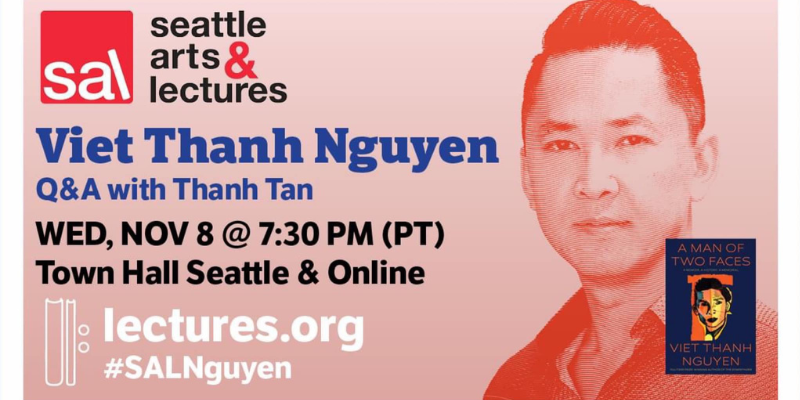Rental Partner: Seattle Arts & Lectures presents
Colm Tóibín
Long Island: A Novel

Rental Partner: Seattle Arts & Lectures presents
Ideas of Vietnam and America

With insight, humor, formal invention, and lyricism, Viet Thanh Nguyen rewinds the film of his own life in A Man of Two Faces. The Pulitzer Prize-winning author of The Sympathizer, Nguyen expands the genre of personal memoir by acknowledging larger stories of refugeehood, colonization, and ideas about Vietnam and America, writing with his trademark sardonic wit and incisive analysis, as well as a deep emotional openness about his life as a father and a son.
Viet Thanh Nguyen was born in Vietnam and raised in America. He is the author of The Sympathizer, winner of the Pulitzer Prize and soon to be an HBO Original Series; its sequel, The Committed; the short story collection The Refugees; the nonfiction book Nothing Ever Dies, a finalist for the National Book Award; and is the editor of an anthology of refugee writing, The Displaced. He is the Aerol Arnold Professor of English and American Studies and Ethnicity at the University of Southern California and a recipient of fellowships from the Guggenheim and MacArthur foundations. He lives in Los Angeles.
All Encore Series, Create Your Own Series, and Super SAL subscribers receive a copy of A Man of Two Faces, shipped to their doors by SAL partner bookstore, Elliot Bay Book Company.
Please note: complimentary subscriptions and single tickets do not include the book.
About Seattle Arts & Lectures
Seattle Arts & Lectures (SAL) cultivates transformative experiences through story and language with readers and writers of all generations. Learn more about SAL programs here.
Rental Partner: Seattle Arts & Lectures presents
Long Island: A Novel
Rental Partner: University of Washington Office of Public Lectures presents
Philosophical Nonviolence and the Democratic Ideal
Rental Partner: Fever presents
The Best of Hans Zimmer